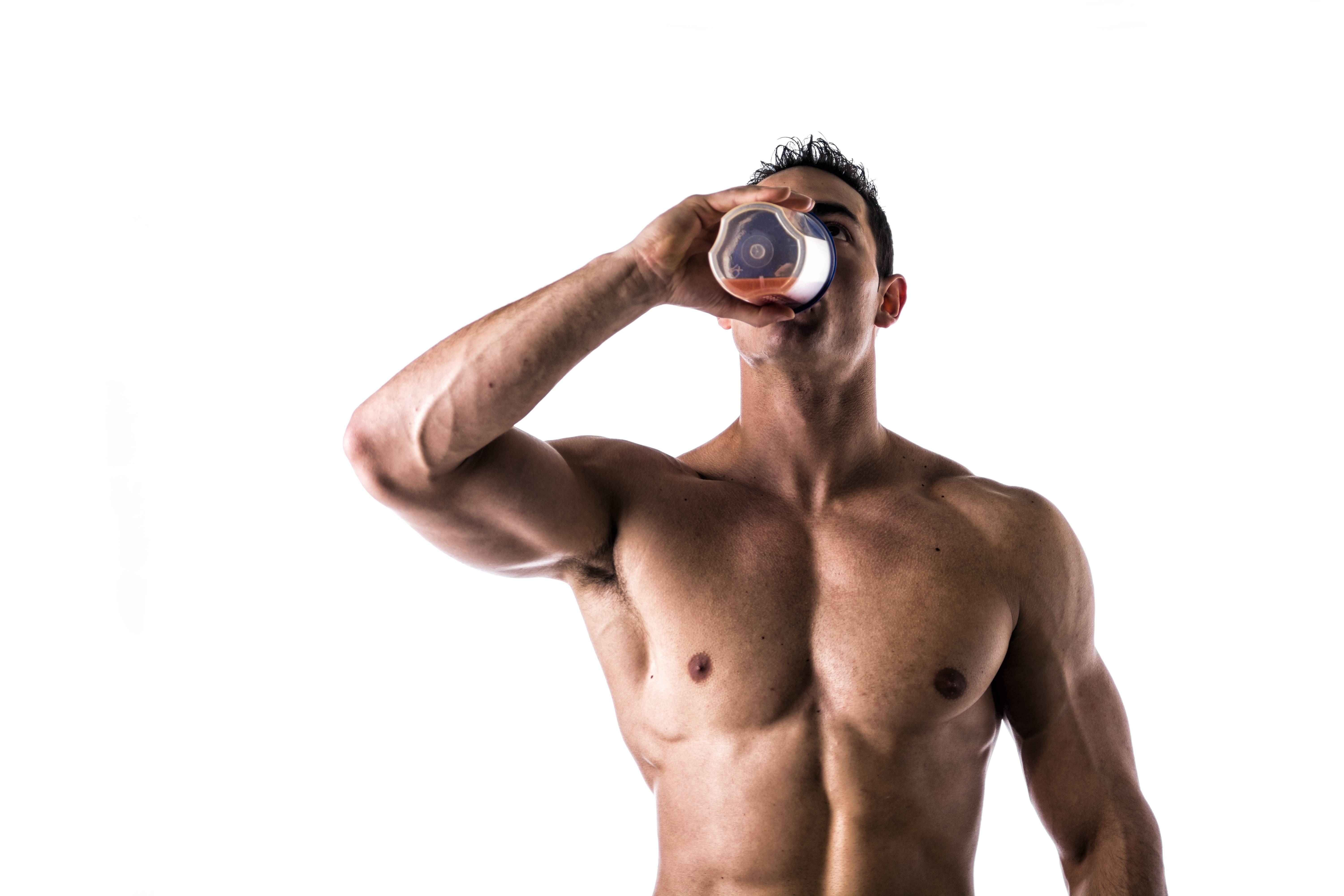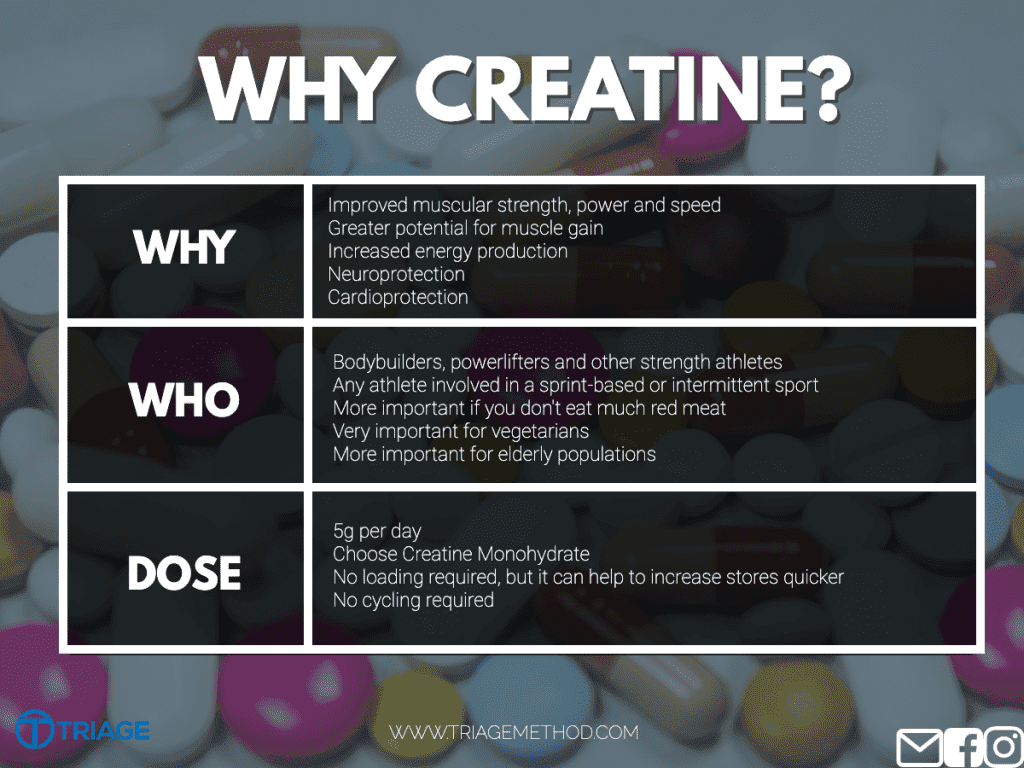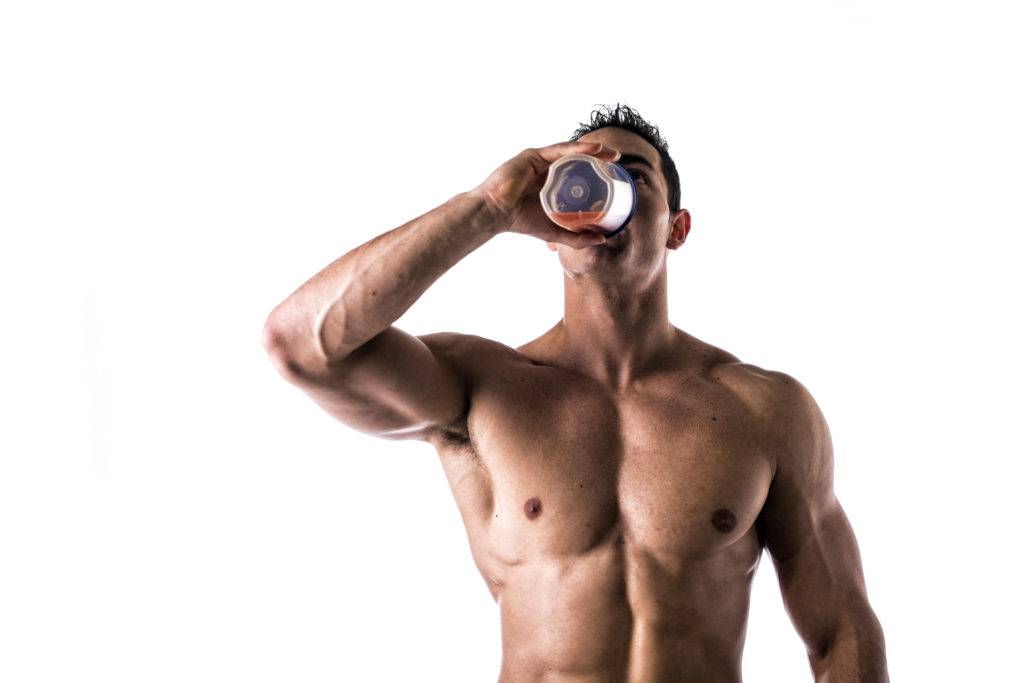Most gym-goers are addicted to pre-workout. They need to drink copious amounts of these special pre-workout potions to supercharge their workouts, yet you have no doubt heard your favourite Instagram fitness vlogger saying they are gonna “cycle off pre-workout for a while, to resensitise to its effects”. But does this actually make sense or is this just another gym myth? And more importantly, why are they taking pre-workouts in the first place? Do you need to take a pre-workout?
“Pre-Workout”?
The majority of preworkouts are based around 3-4 ingredients, and although they add copious other ingredients to them in a proprietary blend (read “insignificant dosages”), they are all based around the same stuff.
- Caffeine
- Beta-alanine
- Citrulline Malate
- Creatine
You would think supplement companies have your best interest at heart when designing supplements, and that they really just want to design the best pre-workout supplement to help you achieve your goals, however, this is not necessarily true. They generally want to optimise their profits. So while these pre-workouts often contain the right ingredients, they generally don’t contain the right doses. They tend to list a ton of exotic ingredients on the label, but this generally doesn’t translate into any tangible results, because the dosage is incorrect. Add to that the fact that people don’t take them optimally, they end up being just expensive caffeine.
Pre-Workout Caffeine
The effective dose for caffeine is somewhere in the range of 2-6mg/kg, and the majority of pre-workouts contain 200mg. This is generally the least underdosed supplement in pre-workouts, as it is the one that is giving the most effects. So, supplement companies know that having enough caffeine in their pre-workout will mean you notice a “hyped” sensation and thus conclude that the pre-workout is effective. However, caffeine supplementation does tend to lead to some desensitisation. Now I don’t mean it stops working, but it does stop feeling like it is working, even though you are still getting the benefits. The desensitisation is merely the desensitisation to that hyped feeling, and not the actual supplement itself. This is why you see people taking 2-3 scoops of pre-workout rather than the recommended 1 scoop. They are simply upping the dose until they start feeling the hyped feeling again. As it generally still means they stay within the effective dosage, this isn’t necessarily a bad idea. However, it starts becoming an issue when you are relying on the caffeine to get your session in, and/or when you end up taking 4+ scoops to get an effect. You also need to take the pre-workout roughly 30-90minutes before the workout to really get the performance-enhancing effects from caffeine, and those that are slamming their pre-workout as they get in the gym door, are generally only going to start really feeling effects as they leave the gym an hour later.
One does not need to use a pre-workout to supplement with caffeine, of course. If you enjoy coffee, it is very easy to get in a potent dose of caffeine through coffee alone. Alternatively, you could use one of the many energy drinks available on the market these days, or simply use caffeine-anhydrous pills on their own. We generally don’t recommend using caffeine powder, as measurement errors could be fatal!
If you want to get an idea of how much caffeine is in different drinks, this is a great resource that will help you.
Pre-Workout Beta-Alanine
Beta-alanine is a favourite of supplement companies. Not because it is a very effective pre-workout supplement (it actually isn’t a great supplement for “bodybuilding” purposes, unless you are putting tension on your muscles continuously for over a minute with each set), but rather because it causes paresthesia. This is responsible for the tingly sensation you get from pre-workouts. Supplement companies and gym-goers love this, not for its benefits, but rather for a kind of placebo effect, whereby they can “feel” the pre-workout working so it must be improving their performance! Physiologically it isn’t generally providing a boost, although psychologically they could be getting a placebo boost. Beta-alanine also isn’t something that gives you an immediate effect, and it must be consumed chronically over time to get an effect.
Pre-Workout Citrulline Malate
Citrulline malate is another woefully underdosed component of pre-workout formulas, and this is purely money-saving by the supplement company. 6-8g of citrulline malate is generally an optimal dose, and the average pre-workout even with 3 scoops generally doesn’t achieve this. Citrulline malate also needs time to really get the benefits from it, so roughly 30-60ish minutes pre-training, this would be perfect. Combine the underdosing of pre-workouts and the fact people generally consume them immediately in the 5 minutes before training, they become even less effective.
Pre-Workout Creatine
Some pre-workouts will contain creatine, which is an excellent supplement that taken pretty much at any time will provide benefits and if taken chronically will provide continuous benefits. However, most pre-workouts don’t contain creatine, purely because of the myths surrounding creatine. People think it is a steroid or it will cause massive bloating, neither of which is true. While creatine does provide some immediate benefits, generally it must be taken chronically to see effects. This is another reason why some companies don’t add creatine, as they can then sell their own creatine separately. Generally, those pre-workouts that do put creatine in their products will dose it effectively because it is relatively cheap, however, some companies will just add a very small amount of creatine to their products, purely so they can include it on the label!
Preworkout Carbs & Water
Nutrition is often not discussed in relation to pre-workout, but realistically your nutritional practices have a more pronounced effect on your workout than taking a supplement does. You ideally want to have a well set up diet in place, before you even consider pre-workout supplements. Carbohydrates especially are required for your best performance, and although glycogen stores are topped up over the long term and not just acutely, having some carbs before training is a very effective strategy to improve performance. Placing some of your daily carbohydrate allowance in the preworkout period will allow you to train at your hardest (pre-workout nutrition is often overlooked in favour of supplementation).
Ensuring adequate hydration will improve performance too. Most people walk around in a state of chronic dehydration. Do a quick audit of your water intake now. You should be drinking roughly 40ml/kg, and no you are not unique and “just need less”. You can only make that statement if you have spent a significant amount of time actually drinking over 40ml/kg, and not having spent all of your time getting way less. Drinking 1-2L of water around your workout is a beneficial strategy for increasing performance and the pump, but getting hydrated chronically is a better strategy.
Should You Take A Pre-Workout?
So if I am making pre-workouts out to be so ineffective, why do people still take them? Well, the first reason is that people love the placebo effect. People take a pre-workout and suddenly they think they will be getting supercharged training sessions, hit personal bests and get skin splitting pumps. And they do! But this is generally because they actually started training harder. Mentally their attitude to training has changed. They are on this new pre-workout that promised supercharged workouts, so they make those supercharged workouts happen. It is a self-fulfilling prophecy. Now, this is not to discount the effects some pre-workouts have, as some are actually efficaciously dosed and have some awesome ingredients. But oftentimes, it is merely a combination of placebo, caffeine hype, and pushing harder while training that leaves people to keep coming back for more.
The second reason (and one that feeds into the first) is that people love side effects. You may think this is silly, but most people do actually favour side effects rather than effects. They love feeling overly hyped from caffeine. That wired, cracked-out feeling from overstimulating their body with a powerful stimulant makes them “feel” superhuman, so they train harder. The beta-alanine tingles let pre-workout drinkers “feel” the pre-workout kicking in. Once they feel that tingle they know they are going to have an unbelievable session!
These are not the effects you want from a pre-workout, but rather the side effects from these ingredients. But people love that nonetheless.
This is why so many people need to cycle off their pre-workout drinks, not because they became less effective, but rather because they stopped feeling these side effects. They no longer feel the cracked-out stimulation from too much caffeine, and they no longer get the tingles from beta-alanine, therefore they must have desensitised their receptors or something, right? Wrong. They just stopped feeling the side effects, the effects are still occurring. There is no actual need to cycle off caffeine (as was once thought) as its effects are still present, regardless of whether or not you “feel” them any longer. The other ingredients in pre-workouts also make no sense to “resensitise” to, as their effects are generally cumulative (for the most part) and the longer you take them the better the effects actually are.
Don’t get us wrong on this, however, pre-workouts that are correctly formulated can and will improve your actual performance and you may in some instances need to cycle off your pre-workout. However, consider these points first:
- Are you taking a pre-workout supplement to mask your chronically fatigued and under-recovered body?
- Do you feel you MUST train regardless of the feedback your body is giving you?
- How has your sleep quality been, and does pre-workout intake actually affect the quality of your sleep?
- Are your nutritional protocols actually effective? And are you actually following them?
- Why are you feeling fatigued going into your session?
- Are you looking for a defined performance increase from pre-workout supplementation or are you just looking to feel hyper-stimulated?
- Are you actually addicted to a feeling of hyperstimulation, and not actual results? (i.e. do you feel training wouldn’t be effective without a pre-workout so you might as well not even train if you don’t have your pre-workout supplement handy).
Pre-Workout Summary & Application
The vast majority of people are using pre-workout supplementation to mask the fact that they don’t value or prioritise their recovery at all. People will not drink water all day, barely eat enough calories, sleep for 4 hours a night and then expect their energy levels to be off the charts for training. You need to start recovering as hard as you train. Don’t use pre-workout supplements to try to overcome your poor lifestyle, nutrition and recovery methods, and instead, use pre-workout supplementation to enhance an already optimal system. Before you consider purchasing a pre-workout, it really would make a lot of sense to ensure your nutrition, sleep and stress management practices are actually in a good place, as these are all going to offer way more bang for your buck than a pre-workout.






